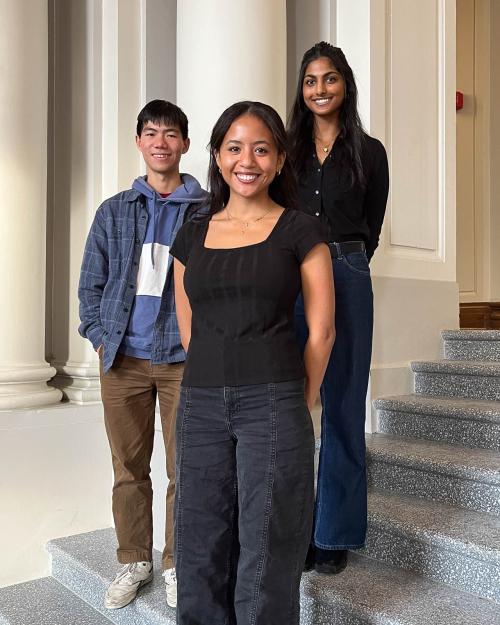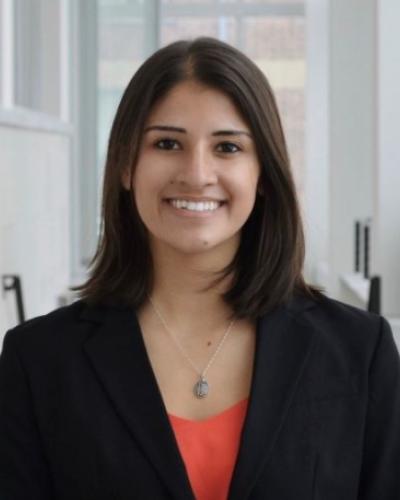Junior economics major Ariya Roberts has been taking an exploratory approach to her coursework, her major, and her career interests. She started off at Cornell thinking that she would be a computer science major because she was interested in math and logic, but after learning more about software engineering from her brother who works in that field, she decided that computer science wasn’t quite the right fit for her. She wanted her major to provide her with a wider variety of career paths, so she decided to pursue economics. She’d loved Introduction to Microeconomics with Nicholas Sanders, assistant professor of economics, and she knew that economics would involve a lot of math. What she didn’t know as a freshman was that economics would enable her to combine her interests in math, government, and policy. She also discovered interests in law and behavioral economics along the way. She liked being able to “analyze people in a mathematical way”; developing mathematical models to analyze human behavior has given her a way to make sense of the world.
She decided to pursue research opportunities in economics in part to help her decide whether her next step after graduation would be full-time work, law school, or graduate school in economics. She was able to find a position as a Hatfield Undergraduate Research Assistant for Jamein Cunningham, assistant professor of economics, that enabled her to both explore her legal interests and see what day-to-day life as a graduate student or professor doing economics research might be like. Prof. Cunningham is investigating changes in police departments resulting from federal interventions in the form of consent decrees, which are court-enforced agreements that ensure police departments implement racial bias education programs that aim to prevent civil rights violations by officers. Ariya is working with another RA to examine consent decrees and create a comprehensive legal database that will be useful for researchers. The data set they are using is small enough that she is able to examine each consent decree closely, so she’s gained experience parsing dense legal documents. The core economics courses have prepared her well to do this work, as have her introductory computer science classes. She would recommend courses such as CS 1110 Introduction to Computing Using Python or CS 1112 Introduction to Computing Using MATLAB to economics majors interested in doing research with professors.
Ariya has also been able to use her knowledge of economics in her role as president of Global Market Analysts Cornell (GMAC), which is a business research club that produces a publication at the end of each semester. She began last year as a project manager for the club, leading two project teams in the areas of technology and international trade and tariffs. She’s enjoyed learning how to lead people, organize groups, and keep enthusiasm strong, and its been especially rewarding to produce a tangible result in the form of a publication.
Ariya plans to attend law school after graduation and will take her LSATs this summer, but she’s keeping career options open. She’s not really set on being an attorney, but is very interested in government and believes experience with law and economics will be valuable in that arena. Consulting is another option—she spent last summer and plans to spend this one working for a consulting firm with many partners who are lawyers or who majored in economics.
When I asked Ariya what her experience as a woman in a male-dominated field such as economics has been like so far, she said that although the department offers courses taught by female professors, she hasn’t had the opportunity to take one of them yet, and feels she is missing out on something in that sense, but that she has found greater diversity in the students majoring in economics and is lucky to have many female friends in the major. She has found economics to be more inclusive than computer science because many of the students in her computer science courses seemed to share interests in things like robotics and gaming that she couldn’t relate to, whereas it seems like the people she meets in economics classes are often double majors and pursuing a wide variety of interests and projects. They share her exploratory approach to learning, and that makes her feel at home in the major.





